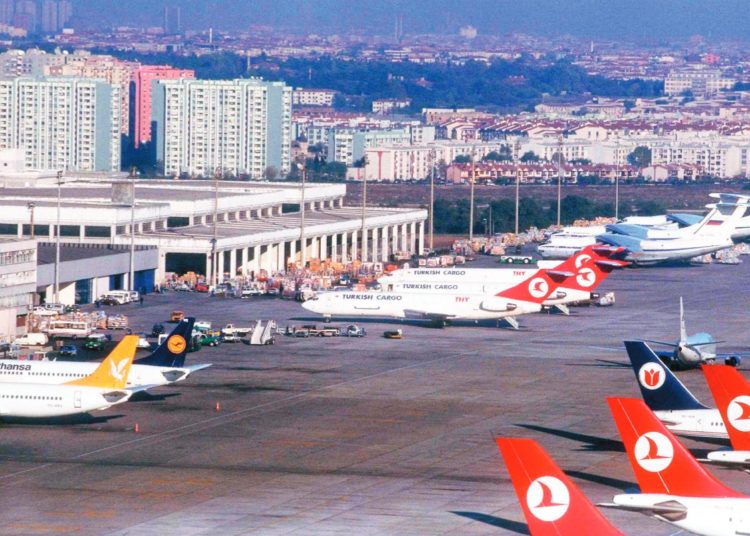Abdullah Bozkurt
In a clear violation of aviation safety regulations and host country labor laws, Turkey’s national flag carrier, Turkish Airlines (THY), has been found to be secretly reshuffling employees among European airports, creating a major gap in airport security.
According to whistleblowers who spoke to Nordic Monitor, THY moved employees from airports in Turkey and other European countries to meet customer demand at peak season without informing host country authorities. This discreet policy, which created legal and administrative troubles for THY offices in some countries, helped bypass strict security guidelines as employees were not subjected to screening by the authorities of host nations.
What is more, the sources say, the policy violates a number of immigration, customs and labor laws as employees who work at airports must meet a number of requirements before they are allowed to take over jobs even temporarily. The instances that were cited by the sources, who wanted to remain anonymous for security reasons, show that THY employees were brought in to work in ticketing and sales offices. Although the offices are not located on the secure side of airports, similar regulations concerning immigration, labor and security requirements still apply.
In one instance mentioned by one source, THY flew an employee directly from Turkey and had that person start working at a European airport. In another instance an employee was transferred from one European airport to another on an interim basis without informing local authorities. “A THY employee testified to the immigration officer that he came on a tourist visit but started working the next day at the THY counter at the airport after spending the night in a hotel,” the source said.
In one case that was kept out of public view, police in Norway raided the THY offices in Oslo and detained a person who was instructed by the THY administration to work temporarily in the operations section of the airport. Norwegian authorities immediately deported the THY worker back to Turkey and issued a Europe-wide notice against the person. The administrative and criminal investigations into the incident are still pending.

THY is run by people close to Turkish President Recep Tayyip Erdoğan and his family. The general director of THY is Bilal Ekşi, who is from Rize province, the hometown of the Turkish president. The chairman of the executive board is İlker Aycı, a close friend of Erdoğan’s son Bilal. Aycı, the former vice president of the İstanbul branch of Erdoğan’s ruling Justice and Development Party (AKP), was a controversial figure in a December 2013 corruption scandal that implicated government officials and associates. He was involved in a development project in a wealthy part of İstanbul with Saudi businessman Yasin Al-Qadi, once listed as an al-Qaeda financier on both the UN and US sanction lists. The case was hushed up by Erdoğan.

In 2014 a leaked recording of a conversation that took place between an adviser of Erdoğan and an official from THY revealed that Turkey’s national airline and the Turkish government were alleged to have been involved in a transfer of arms to Nigeria. According to the voice recording uploaded onto YouTube, Mehmet Karataş, executive assistant to the chief executive officer of THY, is heard telling Erdoğan adviser Mustafa Varank, now the industry minister, that he feels guilty about the transfer of weapons to Nigeria. Karataş is heard saying in the recording, “I don’t know whether these [weapons] will kill Muslims or Christians.” Varank says he had not had a chance to talk to the head of the National Intelligence Organization (MIT), Hakan Fidan, and would get back to Karataş as soon as he was able to speak to the intel chief. The recording was believed to be yet another piece of evidence of the Erdogan government’s aiding and abetting of armed jihadist groups in other countries including Boko Haram militants in Nigeria.

THY is also facing legal troubles abroad over the abrupt and unlawful dismissal of employees assigned to work in overseas offices because of illegal profiling lists maintained at headquarters. The purge of THY employees, directed by the the Turkish government without any administrative or legal investigation, caused hundreds to lose their jobs overnight. The government blocked their legal challenges in Turkey but is struggling to justify the purge in other countries where host country labor laws take precedence.












